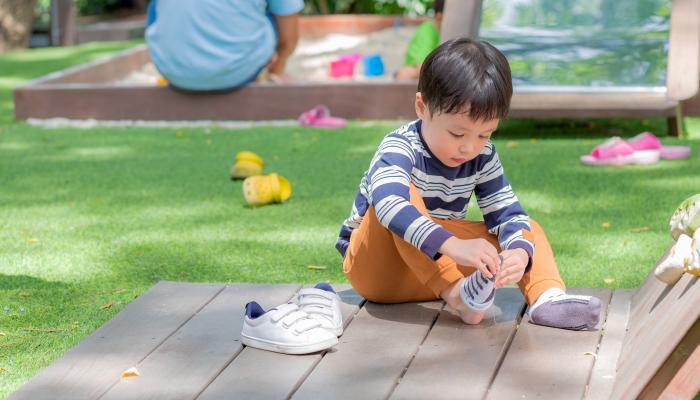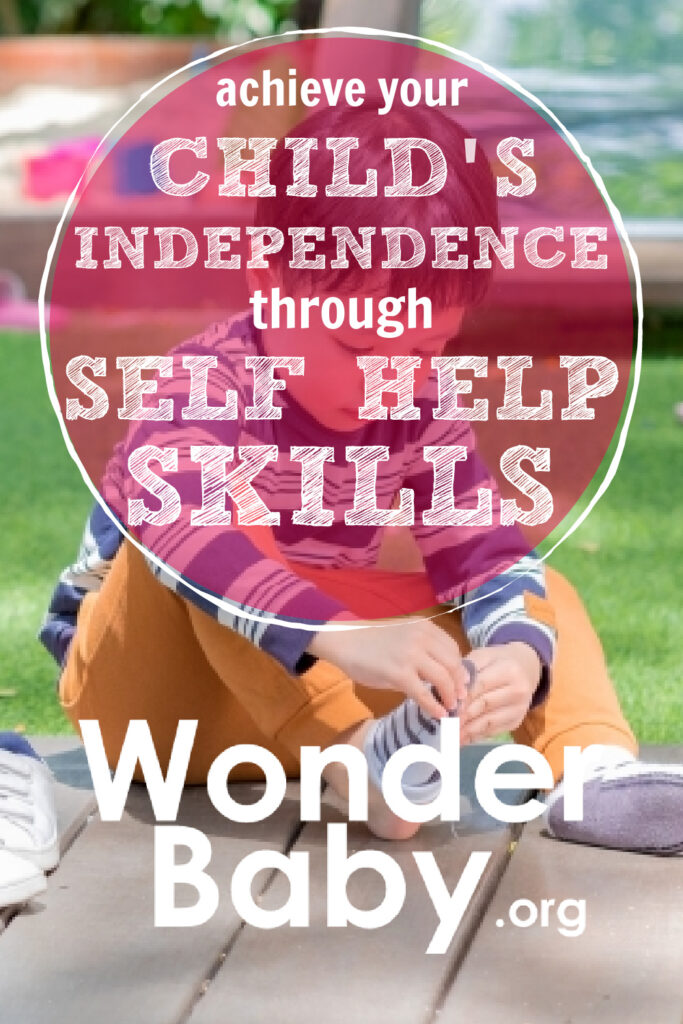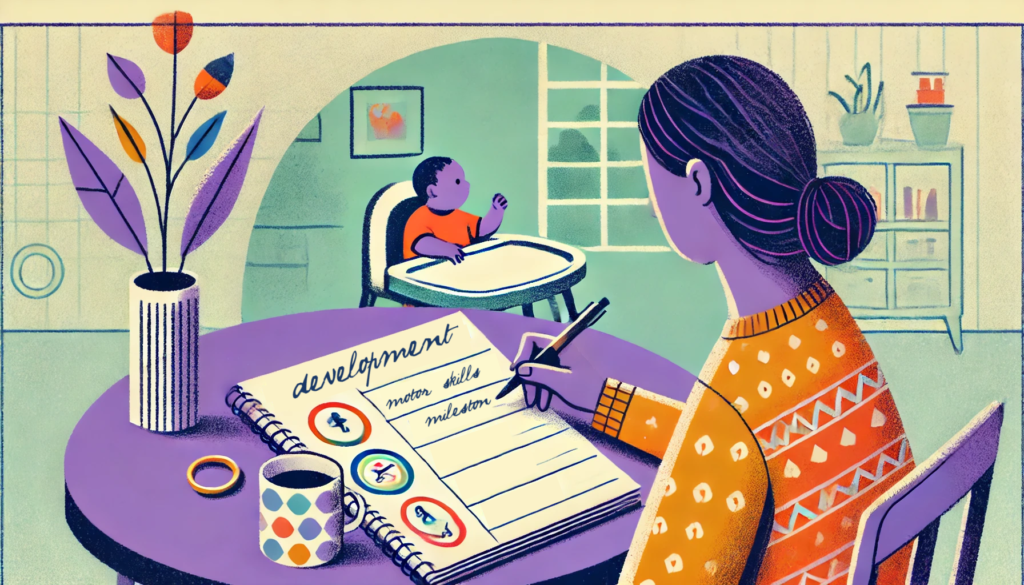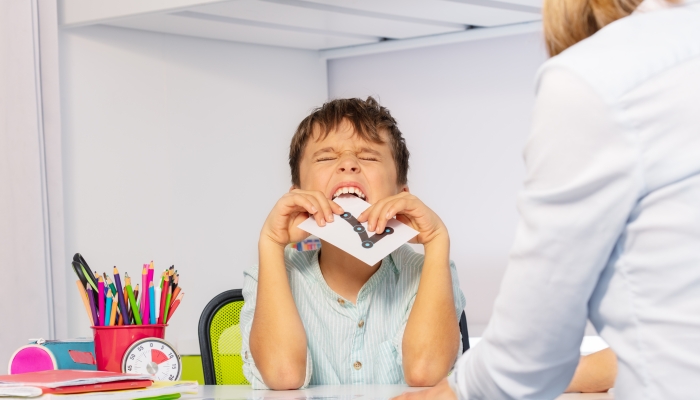Self Help Skills: Helping Your Child Achieve Independence

- Self help skills are essential for your child’s independence.
- Tantrums and power struggles are often a sign your child is asking for more independence,
- You can encourage self help skills through modeling, reading books, asking for help, and playing games.
- Practicing patience and removing unnecessary pressure will provide an environment for your child to grow.
You’re running late, but your potty training toddler rushes to the toilet unprompted.
It’s been a long day and you’re exhausted. Your young child brings you their toothbrush and says “brush teeth?”
Your son got dressed on his own but the shirt is on backward and the pants are inside out. He beams with pride and exclaims “I did it!”
The above moments can make any parent cringe. Watching a young child complete a task such as zip a coat, comb their hair, or buckle their seatbelt, can be excruciating for a time-crunched adult.
Although it can be hard to allow children to do things themselves, developing self-help skills is crucial to a child’s mental and physical development.
What Are Self Help Skills?
Self help skills are behaviors or activities performed by your child which lead to them developing more independence and autonomy. Such skills include personal hygiene, dressing, cleaning up, and helping with chores.
Children need to master age-appropriate skills to build self-esteem, confidence, and trust in themselves.
What Are the Main Types of Self Help Skills?
- Personal Hygiene
- Brushing hair
- Washing hair
- Wiping face with a towel
- Washing hands with soap and water
- Brushing teeth
- Using a tissue
- Cleaning themselves after using the toilet
- Dressing
- Independent dressing
- Choosing clothes that match
- Tying or strapping shoes
- Cleaning up
- Picking up toys
- Making bed
- Putting clothes away
- Helping with chores
- Stirring and pouring food
- Cutting food with a butter knife
- Setting the table
- Washing or drying dishes
- Putting away trash
- Self-feeding
- Folding or sorting laundry
A child’s ability to complete the above tasks depends on their own individual age and development. All children develop differently so it’s important to not judge one against the other.
Expectations need to be low as well. When a child learns a new skill, It may not be done “perfectly” from your viewpoint but over time it will continue to improve.
A preschooler might make their bed all crooked and wrinkled but the important part is that it’s done.
When a toddler puts his head in his shirt, he may need a little assistance, but he can put his arms in their correct spots and pull the shirt over his belly.
Both are examples of a child learning age-appropriate self help skills.

Why Are Self Help Skills Important?
Self help skills support independence
Your job as a parent is to work yourself out of a job. As you encourage your child to take care of themselves, as opposed to doing it for them, you are instilling life-sustaining habits. They will take these habits into adulthood.
The ultimate goal of parenting is to support and encourage independence as the child is able.
With each mastered self help skill, your child is one step closer to independence, which then also increases their self-esteem and trust in themselves. If they believe in their ability, they will be less clingy and more confident to do things on their own.
Self help skills are a sign of appropriate brain development
All brains develop differently. Some kids will be able to dress themselves earlier than others. One child may not learn to blow their nose until elementary school, yet others can do it at age 2. The exact age of the development doesn’t matter as much as the mastering of the skill does.
For successful adult functioning, self-care skills need to be mastered eventually. So as you see your child master different care tasks you can trust their brain is developing properly.
Allows for age-appropriate responsibility among the family unit
Children need to feel like a part of the family unit. They thrive with reasonable amounts of responsibility.
They start learning independent skills through the course of watching the adults in their life.
What’s Necessary to Develop Self Help Skills?
One of the most important things needed to develop self help skills is to not discourage your child’s attempts to self-care. Sometimes, parents will set limits with their children that interfere with their independent skills due to fear of them hurting themselves or making a mess.
“Don’t do that, you’ll get hurt!”
“Stop that! You’re making a mess. I’ll just do it.”
Both of those statements are very discouraging to a growing child, despite the best of intentions by the parent. Discouraging their attempts at self-care may stunt their motivation to develop the necessary skills.
Instead, offer encouragement with prompts, patience, and positivity such as, “Look you did it on your own!” or “You got it done faster this time. I’ll help you clean up the mess.”
Children develop when they have their basic needs met. Basic needs include fresh water, food, safe housing, protective clothing, secure attachment figures, and medical care. Not having the basic needs met can stunt the learning process due to the brain’s inability to get out of survival mode.
In a hostile or deprived environment, a child will feel unsafe testing their skills.
A constant state of hunger in young children will distract focus from learning and even playing.
Instead, a well-nourished, safe, and secure child will be able to hit development milestones with more ease than one in survival mode.
Encouraging Self Help Skills in Toddlers
There are several approaches to encourage self help skills, but they all have a few things in common.
Parental awareness
It is common practice for many parents to say “Just let me do it”, especially when in a time crunch or when irritated. With awareness of how important it is that they do things at their own pace, it is possible to take a step back and allow the child to try.
If not allowed to try, these moments are a recipe for a power struggle and/or tantrum.
Patience
Practicing patience with your toddler is essential to creating the positive environment necessary to foster self-care skills. It can be so hard to maintain a patient attitude when you’re stressed or tired. You can be rocking it all day long and then a clingy toddler who doesn’t want to sleep can make the thought of remaining patient and calm a thing of the past.
A few tips to cultivate patience are:
- Allow ample time to leave the house or complete a task. This can accommodate for the extra time it might take to allow your child to do the new skill on his/her own.
- Regular practice of mindfulness. Research shows us that a more mindful parent creates an environment of acceptance and curiosity that may better allow a child to learn new skills more readily.
Model your own self-care
Watching you do your own self-care will motivate your child to mimic you. They learn how to be independent by observing your everyday tasks. The more you can allow them to be involved in what you do, the more they will learn to be self-sufficient.
Let them watch you get yourself ready for the day. Model brushing your teeth, washing your face, and picking out your clothing.
Ask your child for help
Asking them for help, will spark an interest in the activity.
Try prompts such as:
- “I need help putting the trash away. Will you help me?”
- “Can you show me how to put on my shoes?”
- “Would you like to help me brush my hair?”
This will help them feel as if their contributions matter, which builds self-esteem. So not only will you be instilling proper self-care skills you will also be building good thoughts about who they are.
Giving them the confidence to complete activities of daily living can be especially important for children with high anxiety or other special needs

Activities to Improve Self Help Skills
Activities that motivate practicing self help skills don’t have to be tedious! There are a lot of fun ways to encourage your toddler or young child to take care of themselves and their surroundings.
Read books
Reading to your child is beneficial in so many ways. It increases their focus. It helps you bond. It also teaches them valuable life skills in a way that doesn’t feel like work! Below are a couple of lists of books that can spark interest in responsibility and independence:
Play games
Practice makes perfect! The more they play the more they practice. Challenge your child to pick up all the red toys. Set a timer and see how many things they can put away before the timer is done. Use a doll or stuffed animal to practice brushing teeth or dressing. There are so many fun games to play with your child that will encourage and support motivation and practice.
Remember, playing is learning even in older children! So have some fun with it.
FAQs
How do I help a toddler who wants to remain a “baby”?
Be patient and reassuring. The world can be very overwhelming. It’s normal for toddlers to be anxious about doing things on their own.
It might be helpful to talk with your child about the benefits of getting older and gaining more independence.
You could do this through reading books or imaginative play. Help your child find characters they can relate to in stories. Process with them how their favorite characters handle their fears.
My child can have a very stubborn personality. How should I approach encouraging self help skills?
Provide your child lots of space to do things on their own and at their own pace. Do not pressure them to do it your way.
We can feel a lot of pressure from outside sources to get our children to be self-sufficient earlier than they might be ready. Trying to potty train a stubborn toddler who is not ready will teach you very quickly how pointless it can be to even try.
Stay open and encouraging. Every child gets there eventually!
My child seems to be less independent than other kids his age. Should I be concerned?
There are so many factors that play into an individual’s development that comparing one child to the other is an unhelpful thing that many parents fall into.
As stated above, all kids develop at their own speed. Rest assured that if you are teaching, encouraging, and nurturing your child, they will hit their marks as they are ready.
If you feel your child is struggling to reach developmental milestones it would be wise to discuss your concerns with your pediatrician.

Related Posts

Development, Special Needs
How to Track Milestones for Developmentally Delayed Babies
Parents of developmentally delayed babies can explore practical tools and strategies to track milestones, celebrate progress, and support their child’s unique developmental journey.

Fine and Gross Motor
5 Alternatives to Tummy Time for Babies with Motor Development Challenges
Does your baby struggle with tummy time due to motor development challenges? These alternatives to tummy time will offer the same benefits.

Behavior
Understanding Intermittent Explosive Disorder in Children
Are you worried about your child’s unexpected aggression and explosive behaviors? Learn how to support a child with intermittent explosive disorder.